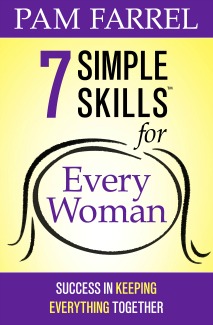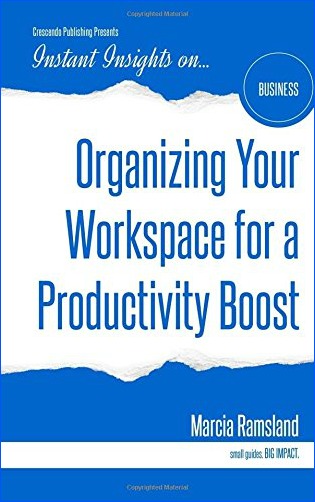Prioritizing People: How to Upgrade Your Decisions
Author and international speaker Pam Farrel always seeks to breathe life into relationships, and in  this Relationship UPGRADE, she focuses on the sometimes tough subject of "who should get my time"?
this Relationship UPGRADE, she focuses on the sometimes tough subject of "who should get my time"?
"Good decisions," Pam says, "will protect and provide for those who might not be able to, or yet know how to, protect themselves"
I (Dawn) know women struggle with prioritizing the people in their lives. However, none of us has unlimited time, energy or focus. As my friend Pam says, "The reality is, we must learn to see people and how we spend our time with and for people from a more heavenly point of view."
Pam continues . . .
Often women feel frozen when trying to decide on just how to prioritize people. However, even Jesus had to make choices on how He would spend His time and with whom.
Here are two of the questions I ask when trying to decide people-time priorities:
1. Who has earned more right to my time?
Some people truly deserve to be prioritized. For example, I will always answer my cell and quickly return a call to my mother, or rearrange my schedule if she is in need of my help. I do this because she gave birth to me, then gave of herself to raise me into the leader I am today. (Believe me, with my strong will, she had her work cut out for her!)
When I said, “I do” to my husband, God asked me to become a quality “helpmeet” to him.
Also all of my sons, their wives, and my grandkids deserve my time, because God gave them to our family as a gift.
My siblings, grandparents, in-laws, those in my extended family may also rotate in my schedule if they have a pressing need or issue that my skills set can help with.
In addition, if I make a commitment to a client (or boss), a disciple or a mentee, I do everything in my power to keep promises made.
Most of us understand this concept in principle—but what happens when several of these people —or others—all seem to need us all at the same time?
At that moment, I ask:
2. Who is "the least of these"?
Jesus used this principle in a parable:
"The King will reply, 'Truly I tell you, whatever you did for one of the least of these brothers and sisters of mine, you did for me'" (Matthew 25:40 NIV).
In your situation, ask, “Who needs protected or provided for most?”
“The least of these” are the very smallest or least of status. Jesus said how we treat those who we cannot gain from—and may not be able to protect or provide for themselves—is a reflection of how we are treating Jesus.
In a family setting “least of these” might be:
A CHILD
If you are a parent, every decision you make, know that your children are your “least of these”. So ask:
- “How will this impact the kids?”
- “What choice do I need to make to give the best long range outcome for the kids?”
- “Who do I want my child to be as an adult? What choice here will get them there?”
A PARENT
The least of these does not always mean a child focus. For example, we went from directing and caring for our sons, and then a few years later, it was obvious Bill’s aging parents needed to become a high priority. Because their health continued to decline, we put our home up for sale to move nearer to aid them.
A FAMILY MEMBER or FRIEND
God might move one of the relationships listed under the first question above to the front burner of your life if something catastrophic hits: a death, an illness, a financial collapse, etc.
These are more often a temporary shift of time, energy and focus given until the storm has passed.
YOU!
When you fly on a plane, the flight attendant always says, “In case of an emergency, put the oxygen mask on yourself first, then on the person you are traveling with”.
To care for “the least of these” means we also have to care for ourselves, so we can care for others!
Today, who is your “least of these”?
 Pam Farrel is the author of 45 books, an international speaker, and relationship expert who seeks to breathe life into people’s most vital relationships through
Pam Farrel is the author of 45 books, an international speaker, and relationship expert who seeks to breathe life into people’s most vital relationships through  the ministry she runs with her husband, Love-Wise. Today’s blog is adapted from her newest book, 7 Simple Skills for Every Woman: Success At Keeping It All Together.
the ministry she runs with her husband, Love-Wise. Today’s blog is adapted from her newest book, 7 Simple Skills for Every Woman: Success At Keeping It All Together.
 Post a Comment → Posted on
Post a Comment → Posted on  Thursday, October 13, 2016 at 12:40PM
Thursday, October 13, 2016 at 12:40PM  Caring for Parents,
Caring for Parents,  Least of These,
Least of These,  Relationships,
Relationships,  Time,
Time,  Time Management,
Time Management,  priorities Upgrade Your Life
priorities Upgrade Your Life  Priorities,
Priorities,  Relationships
Relationships 













